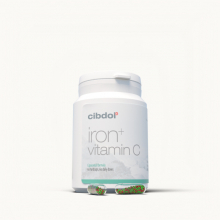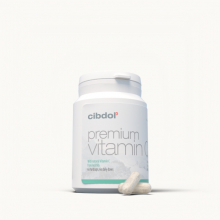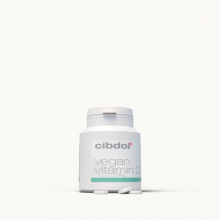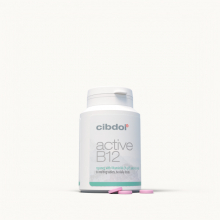What vitamins should I take?
Published:

These are the vitamins most US adults should be taking—vitamin D and vitamin B12, plus vitamin C in certain cases. This is particularly the case if their diets are deficient in fresh fruits or milk.
Contents:
- Why Vitamins Even Matter
- Figuring Out Your Vitamin Needs
- Essential Vitamins: The Lineup
- Don't Forget These Minerals
- Smart Supplementing: My Tips
- Vitamins for Different Life Stages
- Conclusion
-
Frequently Asked Questions
- What are the most important vitamins I should take daily?
- How do I know if I need to take a vitamin supplement?
- Can I get enough vitamins from food alone?
- Are there vitamins recommended for different ages?
- Should I take minerals along with vitamins?
- Can taking too many vitamins be harmful?
- What’s the best time of day to take vitamins?
Vitamin D supports bone health and mood; deficiency is prevalent among those who spend a lot of time indoors. Vitamin B12 helps keep nerves and blood cells healthy—more often a deficiency in older adults or those consuming a lower-meat diet.
Though most people meet their vitamin needs through food, shortfalls may appear when dietary patterns lack these essential categories. A daily multivitamin can go a long way, but it’s wise to consult with a physician to determine specific needs.
Coming up, our guide to identifying vitamin deficiencies. We’ll go over how much is safe to take and what foods offer the most bang for your buck for each vitamin.
Why Vitamins Even Matter
Vitamins are not some fad supplement…but a true, daily, active role in preventing disease and maintaining our health. Each vitamin plays a special role in supporting our health. They are important for our cells to produce energy and enable our immune system to fight off pathogens.
Our diet, lifestyle, and daily stress all determine how much we require. Miss out on important vitamins, and the body begins to suffer—either subtly or, in more extreme cases, in major ways.
Your Body's Unsung Heroes
Vitamins B1, B2, B3, B6 and B12 work together to release energy from the food we eat. Without these, you will start to feel fatigued or lethargic. Vitamin C and E are well-known antioxidants.
These protect your cells from damage, similar to how lemon juice prevents apples from turning brown. Vitamins do much more than just help you grow – they fuel your brain. Vitamin B12, for instance, improves memory and focus.
Those who are deficient in B12 can experience brain fog or feelings of depression. Vitamin D is most known for its contribution to bone formation and maintenance, but it has significant effects on mood.
When Diet Alone Falls Short
Not everyone gets enough vitamins from food alone. For example, vegans are likely deficient in B12, which is only found in animal-sourced foods. Older adults and individuals with intestinal disorders, such as celiac or Crohn’s disease, might not adequately absorb vitamins from their diet.
During pregnancy, the requirements for several nutrients, particularly folic acid, are increased to ensure the proper development of the baby. Even with a perfect diet, as life brings changes and health conditions arise, you may find that you need more.
Are You Missing Key Nutrients?
If you’ve been feeling tired, pale or achy, for example, it might be an indication that you’re deficient in vitamin D or iron. Foods such as sweet potatoes, carrots, oranges, and dark green leafy vegetables provide a good variety of both vitamins A and C.
Even the healthiest diet can’t always provide everything. That’s why regular blood work is key to determining if your vitamin levels are moving in the right direction.
Figuring Out Your Vitamin Needs
Understanding what vitamins you should take requires more than a trip down the store aisle. Your needs may vary based on diet, lifestyle, age, gender and even genetic factors. Specifically, it’s useful to understand which nutrients Americans are most frequently deficient in and when to seek expert assistance.
1. Your Lifestyle Spills the Beans
The higher your activity level, the greater the need for B vitamins to support energy metabolism and electrolytes such as magnesium. Stress, lack of sleep, and irregular eating can deplete stores of vitamin C, magnesium, and zinc.
If you eat minimal fruits and vegetables, you are likely deficient in vitamin A, vitamin K, and folate. Anyone on a strictly plant-based diet should be mindful of B12 and iron deficiencies. If you don’t consume fish, consider an omega-3 supplement.
2. Age & Gender: Big Factors
Nutrient needs change considerably with age. At the same time, children and teens have a higher requirement for vitamin D and calcium to support growing bones.
Iron and folate are particularly essential for adult women. Too much older adults may be at risk for B12 and vitamin D, particularly if digestion begins to slow with age.
Pregnancy and breastfeeding increase requirements for folic acid, calcium, and iron. Women lose more iron through menstruation, while men need less iron after their twenties.
3. Common Gaps in US Diets
Vitamin D, magnesium and calcium are all among the nutrients that Americans tend to get too little of. During winter months, decreased sun availability can lead to even lower D levels — particularly for individuals with darker skin tones.
Even with fortified foods, blood tests indicate that many are still not getting enough. Almost half of Americans are deficient in magnesium, and iron deficiency is over a quarter, primarily in females.
4. When to Chat With Your Doc
If you’re feeling more tired or weak than usual, or noticing other changes in your health, talk to your doctor about it. Blood tests are the best way to determine any deficiencies.
Always inform your doctor of all medications, including supplements, as they can interact with other medications.
5. Do Genes Dictate Your Needs?
Genes influence how you absorb and metabolize vitamins. Individuals may require additional B12 or folate based on a family history of complications.
Genetic tests are becoming more available to assist with this, but understanding your family’s health is a good place to start.
Essential Vitamins: The Lineup
In each of their own unique ways, vitamins help to keep the body healthy and the mind alert. They fall into two main groups: water-soluble and fat-soluble. Water-soluble vitamins, such as vitamin C and the B complex, quickly circulate through the body, with no long-term storage.
Fat-soluble vitamins—A, D, E, and K—accumulate in the liver, fat, and muscle. Getting enough of each one supports nerve, bone, skin, and immune system health. Food is always going to be the superior source, but unfortunately the vast majority of U.S. Adults fall short of their daily targets.
Occasionally, this is where supplements come in, or a daily multivitamin can fill the gap.
B Vitamins: Energy & Nerve Fuel
B vitamins (like B1, B2, B3, B6, B12, folate, biotin, pantothenic acid) break down food and turn it into energy. Vitamin B12 is particularly important when it comes to nerve and brain health. Shortfalls manifest themselves through feelings of low mood or fatigue.
Whole grains, beans, lentils, and leafy greens are all rich sources of B vitamins. Eating a big variety of these foods will help ensure that your energy levels stay consistent.
Vitamin D: The Sunshine Star
Vitamin D is essential for maintaining healthy bones, teeth, muscles and immune function. When sunlight hits the skin, vitamin D is produced. The average person doesn’t get enough sunlight or eat enough vitamin D foods such as salmon, egg yolk, or fortified milk.
Supplements tend to be the easiest way to meet the RDA, particularly in winter or for those spending more time indoors.
Vitamin C: Your Immune Ally
Vitamin C is known for its role in cold fighting and skin health. Citrus, peppers and broccoli are packed with it. In fact, more than 40 percent of U.S. Adults are deficient.
Vitamin C supports immune health as an antioxidant, protecting cells from damage.
A, E, K: Vital Protectors
Vitamin A is essential for eye health and skin health. Vitamin E’s main job is protecting your cells. Vitamin K’s role is in blood clotting.
Leafy greens, nuts, seeds, and oils such as olive oil are rich in these vitamins. Since these are fat-soluble, consuming them with healthy fats increases the amount absorbed by the body.
|
Vitamin |
Key Role |
Best Food Sources |
|---|---|---|
|
B family |
Energy, nerves, brain |
Whole grains, beans, greens |
|
D |
Bones, immune, muscle |
Sun, salmon, eggs, milk |
|
C |
Immune, skin, antioxidant |
Citrus, peppers, broccoli |
|
A |
Vision, skin |
Greens, carrots, eggs |
|
E |
Cell protection |
Seeds, nuts, wheat germ |
|
K |
Blood clotting, bone |
Leafy greens, oils |
Don't Forget These Minerals
Minerals are as important as vitamins. Not only are they beneficial, but they are necessary for your body to function properly. Iron, calcium, and magnesium are three important minerals you should learn more about. Each one has an important job and they all come from different foods.
While a nutritious diet can fulfill most requirements, certain individuals—such as older Americans—might benefit from supplement support.
|
Mineral |
Key Function |
Common Food Sources |
|---|---|---|
|
Iron |
Carries oxygen, aids energy production |
Red meat, lentils, spinach |
|
Calcium |
Builds bones, supports nerve function |
Milk, cheese, kale, tofu, broccoli |
|
Magnesium |
Helps muscles, calms nerves, boosts energy |
Almonds, pumpkin seeds, spinach |
When your mineral levels are balanced, you have more energy, focus and overall wellness each day.
Iron: More Than Just Muscle
Iron transports oxygen in your bloodstream to fuel your cells’ energy production. There are two types: heme iron (from animal foods like beef and fish) is easy to use, while non-heme iron (from beans and greens) is harder to absorb.
When you don’t consume enough, you can become fatigued and weak or become ill more easily. While some need supplements, iron overload can be dangerous.
Calcium: Building Strong Bones
Calcium is essential for strong bones and teeth. It’s great for your heart and your nerves, too. If you don’t consume dairy, you can find calcium in fortified tofu, broccoli, and kale.
If not, soak it up from yogurt, milk and cheese! Since Vitamin D assists your body in utilizing calcium, foods rich in vitamin D such as yogurt, fatty fish, and mushrooms are important as well.
As with many minerals, too much calcium can be harmful, making balance essential.
Magnesium: The Calming Mineral
Magnesium is important for ensuring your muscles and heart function properly. It’s why magnesium’s another name is “the calming mineral”—it helps your body produce energy and maintain calm states.
Most of us aren’t meeting our needs. Foods such as nuts, seeds, and greens—especially spinach—can help you power up. Low magnesium may cause muscle cramps, anxiety, or insomnia.
Smart Supplementing: My Tips
Smart use of vitamins begins with understanding what your body needs and where to source it. Ideally, food would be the primary source for everyone. While supplements can help fill nutrition gaps, they aren’t meant to replace a healthy, balanced diet.
Reading labels, as a general practice, is very important for your health. Following recommended doses and storing products properly goes a long way!
Food First, Supplements Second
Eating a variety of foods ensures that you are providing your body with the right vitamins and minerals and in the right amounts. Make sure you have a plan to include those leafy greens, nuts, lean meats, fish, beans, and dairy into your meals.
For instance, a breakfast of eggs, whole-grain toast, and fruit would hit the bases on several important vitamins. Then lunch with salmon, spinach, and brown rice brings us even further.
Dinner might be some grilled chicken, roasted sweet potatoes, and broccoli. All these better choices contribute to ensuring that daily nutritional needs are met long before you have to consider taking a supplement. If you know you’re deficient, say, low in magnesium, then a supplement can help fill that gap.
Decode Supplement Labels Easily
Tip #4 Decode Supplement Labels Easily. Choose products with the simplest ingredient lists—steer clear of any with artificial colors, sweeteners, or mystery fillers such as stearic acid.
Important terms are “bioavailability.” This is a measure of your body's ability to metabolize the vitamin. The other term to know is “RDA” which means recommended daily allowance.
Look for brands that have third-party testing for quality, and check the amount of each nutrient against your needs.
Too Much of a Good Thing?
Taking excessive amounts of any vitamin can be dangerous. Excessive doses of vitamin D can potentially damage your kidneys.
On the other hand, excessive vitamin C can cause gastrointestinal distress. As a rule of thumb, it’s best to not go over the daily recommended amount and consult your physician to determine what’s best for you.
How Vitamins Interact Together
Vitamins and minerals that assist each other’s function. Vitamin D is important because it helps your body absorb calcium, but too much calcium will actually inhibit magnesium.
Ideally, take iron and calcium at least two hours apart for optimal absorption. If you’re taking more than one supplement, consult a healthcare professional on the ideal timing.
Keep Your Vitamins Fresh
Keep vitamins in dark, dry, cool places, not by a window. Since heat and moisture can break them down, a kitchen cabinet is preferable to the bathroom.
Tip #5 Read the expiration date. If you’re taking old vitamins, they’ve lost their strength and won’t work for you as they should.
Vitamins for Different Life Stages
Our bodies require different vitamins as we age. The amount of each nutrient we need is based largely on different life stages. From fast growth in youth to changes in older age, fine-tuning vitamin intake can help support health, energy, and well-being.
Each life stage comes with distinct challenges—so it’s crucial to adapt to those needs.
Kids & Teens: Growth Spurts
Kids and teens undergo rapid growth, requiring additional nutrients to help them develop strong bones and support healthy brain development. Vitamin D and calcium are crucial for bone health since bone density reaches its maximum between the ages of 25 and 35.
Calcium-rich foods include dairy products like yogurt and cheese, as well as eggs and dark green leafy vegetables. Snacks like nuts or fortified cereals can increase daily intake.
Iron is equally important, particularly for young girls, as iron deficiency is estimated to impact 15.7% of nonpregnant women globally.
Adults: Staying Sharp & Active
For adults, vitamins help maintain overall energy levels and the health of the mind and body. B vitamins are very important, particularly B6, after age 50. The daily requirement increases from 1.3 mg to 1.5 mg.
Antioxidants such as vitamin C and E are important for combating the decline of aging. Eating a variety of whole grains, seeds, fruits, and vegetables helps make that happen.
Along with regular exercise, a consistent vitamin routine can maintain mental and physical health at any age.
Seniors: Supporting Vitality
In older adults, the vitamin D requirement is higher—20 mcg per day after age 70, compared to 15 mcg for ages 50-70. In addition, B12 and calcium are essential to nerve and bone health.
Getting enough omega-3-rich fish, dairy foods, or calcium-rich fortified foods in the diet—supplementation can help. Folate (400 mcg) continues to be key for women of all ages, particularly those who are pregnant or may become pregnant.
Plant-Based Diets: Extra Care
For vegetarians and vegans, special attention should be paid to B12 and iron, as plant foods do not provide these nutrients in readily absorbed forms. Fortified plant milks, legumes, and judicious use of supplements can go a long way towards fulfilling these requirements.
Iodine is important, with increased requirements during pregnancy (220 mcg) and lactation (290 mcg).
Conclusion
Consider your age, overall health, dietary intake, and lifestyle. Generally, people can meet their needs through a healthy diet, but hectic lifestyles or dietary deficiencies sometimes require a supplement. Children, pregnant women, people over 50 years of age—each subdivision has its own advisory list. Vitamin D, B12, C, and iron consistently bubble to the top in the U.S. Switch it up in the kitchen, enjoy the great outdoors, and if you’re still feeling out of sorts or fatigued, check in with your physician. No magic pill—just wise, gradual practices. Keep yourselves educated, read your labels, and don’t be afraid to ask questions if you’re ever in doubt. Interested in reading more or telling your own story? Stay in touch and stay healthy from the top shelf.
Frequently Asked Questions
What are the most important vitamins I should take daily?
These are the vitamins most adults in the U.S. Are lacking Vitamin D Vitamin C Vitamin B12 Vitamin A
What are the most important vitamins I should take daily. Bonus tip Your individual needs will be different, so always consult your personal healthcare professional.
How do I know if I need to take a vitamin supplement?
If you eat a limited diet, have specific health concerns, or don’t get enough sun, you might require supplements. Blood tests are generally the best way to identify any deficiencies. You should always consult your doctor before first.
Can I get enough vitamins from food alone?
Can I get enough vitamins from food alone. Others will inevitably need supplements, thanks to lifestyle or health factors.
Are there vitamins recommended for different ages?
Yes. What vitamins should you take for each age? Kids, adults, and senior citizens all have different vitamin requirements. As an illustration, older adults usually need higher doses of vitamin D and B12. At the same time, teens can benefit from added calcium and iron.
Should I take minerals along with vitamins?
Should I take minerals in addition to vitamins. A quality multivitamin usually covers all of these, but your physician can guide you to what’s best suited for your needs.
Can taking too many vitamins be harmful?
The bottom line Is it possible to take too many vitamins? Avoid megadoses and consult your medical professional.
What’s the best time of day to take vitamins?
Take water-soluble vitamins (such as vitamin C and B vitamins) with water, at any time of day. Fat-soluble vitamins (A, D, E, K) are more easily absorbed when consumed with fat.


















